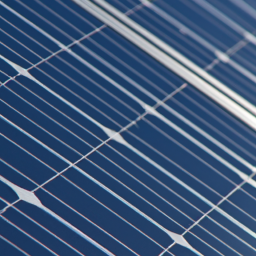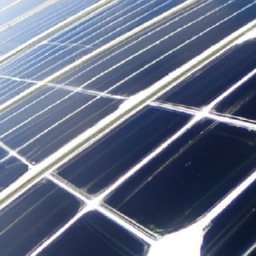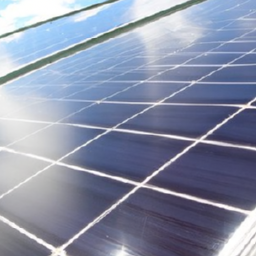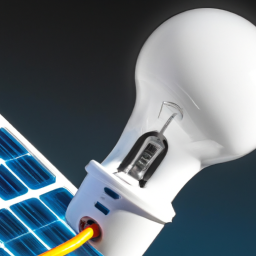Have you ever wondered how long it takes to charge a solar generator? It’s actually a common question among those who are considering investing in this renewable energy source. Well, the answer to this question depends on several factors such as the size and capacity of the solar generator, the amount of sunlight it receives, and the type of solar panels it has. In this article, we’ll dive deeper into this topic and provide you with all the information you need to know about charging a solar generator.
When it comes to charging a solar generator, the time it takes can vary significantly. A small solar generator with a low capacity may take only a few hours to fully charge, while a larger one with a higher capacity may take several hours, or even a full day, to charge completely. The amount of sunlight that the solar panels receive also plays a crucial role in the charging time. If you’re charging your solar generator on a cloudy day or in a shaded area, it will take longer to charge compared to a sunny day with direct sunlight. It’s important to note that different types of solar panels, such as monocrystalline or polycrystalline panels, may also have varying charging times. To learn more about how long it takes to charge a solar generator and other important details, keep reading our article.
Factors Affecting Charging Time
When it comes to charging a solar generator, there are several factors that can affect the charging time. Understanding these factors can help you optimize the charging process and ensure that your solar generator is ready to power your devices when you need it most. In this article, we will explore the factors that affect charging time for a solar generator, calculate the charging time for common appliances, and provide tips for faster charging.
Solar Panel Efficiency
The efficiency of your solar panels plays a crucial role in the charging time of your solar generator. The efficiency of solar panels refers to how effectively they can convert sunlight into electricity. There are several factors that can impact the efficiency of solar panels.
Type of Solar Panels
Different types of solar panels have varying levels of efficiency. Monocrystalline solar panels are known for their high efficiency and are considered the most efficient type of solar panel available. Polycrystalline solar panels are slightly less efficient than monocrystalline panels but are still a popular choice due to their lower cost. Thin-film solar panels, on the other hand, are the least efficient but can be more flexible and lightweight.
Quality of Solar Panels
In addition to the type of solar panels, the quality of the panels also affects their efficiency. High-quality solar panels are manufactured using advanced technology and materials, resulting in better performance and higher efficiency. Investing in high-quality solar panels can significantly reduce the charging time of your solar generator.
Angle and Orientation of Solar Panels
The angle and orientation at which your solar panels are installed can have a considerable impact on their efficiency. Ideally, solar panels should be installed at an angle that allows them to capture the maximum amount of sunlight throughout the day. Additionally, orienting the panels to face south (in the northern hemisphere) or north (in the southern hemisphere) can optimize their exposure to sunlight. Adjusting the angle and orientation of your solar panels can help maximize their efficiency and reduce charging time.
Battery Capacity
The capacity of the battery in your solar generator also plays a crucial role in determining the charging time. The battery capacity refers to the amount of energy it can store. The larger the battery capacity, the longer it will take to charge fully.
Battery Size
The physical size of the battery directly affects its capacity. Larger batteries can store more energy, but they also take longer to charge. When choosing a solar generator, it is essential to consider your power needs and find a balance between battery capacity and charging time.
Battery Type
There are different types of batteries commonly used in solar generators, and each type has different charging characteristics. Lead-acid batteries are the most common type and are relatively inexpensive, but they have a slower charging rate. Lithium-ion batteries, on the other hand, offer faster charging times and higher energy density but are generally more expensive. Understanding the charging characteristics of different battery types can help you choose the right solar generator for your needs.
Battery Charge Controller
A battery charge controller regulates the charging process to optimize the battery’s performance and prolong its lifespan. Some charge controllers are more efficient than others, which can impact the charging time of the solar generator. Investing in a high-quality charge controller can help reduce the charging time and ensure the longevity of your battery.
Solar Insolation
Solar insolation refers to the amount of solar radiation that reaches a given area over a specific period. It is a crucial factor in determining the charging time of your solar generator.
Geographical Location
The geographical location plays a significant role in solar insolation. Regions that receive more sunlight will have higher solar insolation levels and, therefore, shorter charging times. For example, areas closer to the equator generally receive more sunlight throughout the year and have shorter charging times compared to areas further away from the equator.
Time of the Year
The time of the year also affects solar insolation. In general, summer months have more daylight hours and higher solar insolation levels, resulting in shorter charging times. Winter months, on the other hand, have fewer daylight hours and lower solar insolation levels, leading to longer charging times.
Weather Conditions
Weather conditions such as cloudy days can significantly reduce the amount of sunlight reaching your solar panels, thus prolonging the charging time of your solar generator. It is essential to consider the weather conditions when estimating the charging time and planning your power usage.
Calculating Charging Time
To calculate the charging time of your solar generator, you need to consider several factors, including the wattage of your solar panels, battery capacity, charge efficiency, and daily energy consumption.
Wattage of Solar Panels
The wattage of your solar panels determines the amount of power they can generate. Higher wattage solar panels can generate more electricity in a given time, resulting in faster charging times. To calculate the charging time, divide the battery capacity by the wattage of your solar panels. For example, if you have a 100 Ah battery and 200-watt solar panels, the charging time can be calculated as follows: 100 Ah / 200 W = 0.5 hours or 30 minutes.
Battery Capacity
As mentioned earlier, the capacity of your battery directly affects the charging time. The larger the battery capacity, the longer it will take to charge fully. To calculate the charging time, divide the battery capacity by the charging current. For example, if you have a 100 Ah battery and a charging current of 10 amps, the charging time can be calculated as follows: 100 Ah / 10 A = 10 hours.
Charge Efficiency
Charge efficiency refers to how effectively the solar panels can convert sunlight into electricity and charge the battery. Higher charge efficiency means faster charging times. The charge efficiency can vary depending on the quality and type of solar panels. It is important to consider the charge efficiency when estimating the charging time.
Daily Energy Consumption
Your daily energy consumption is another factor to consider when calculating the charging time. If your solar generator needs to power appliances with high energy consumption, it will take longer to charge the battery fully. By monitoring and managing your daily energy consumption, you can optimize the charging time and ensure that your solar generator is always ready to power your devices.
Optimizing Charging Time
If you want to minimize the charging time of your solar generator, there are several steps you can take to optimize the process.
Using More Efficient Solar Panels
Investing in more efficient solar panels can significantly reduce the charging time of your solar generator. Consider upgrading to monocrystalline or high-quality polycrystalline solar panels for improved performance and faster charging.
Increasing Battery Capacity
If you require more power and can afford longer charging times, you can increase the battery capacity of your solar generator. This will allow you to store more energy and have a longer power backup duration.
Optimal Solar Panel Placement
Ensuring that your solar panels are installed at the correct angle and orientation can maximize their exposure to sunlight, resulting in higher solar insolation levels and shorter charging times. Additionally, regularly cleaning the solar panels and removing any obstructions can improve their efficiency and reduce charging time.
Charging Time for Common Appliances
The charging time for common appliances can vary depending on their power consumption and the capacity of your solar generator. Here are some estimates for the charging time of different appliances:
Smartphones and Tablets
Charging a smartphone or tablet typically takes around 1 to 3 hours, depending on the battery capacity and charging speed.
Laptops and Cameras
Larger devices such as laptops and cameras can take longer to charge, usually around 2 to 6 hours, depending on their battery capacity and charging speed.
Refrigerators and Freezers
Appliances with higher power consumption, such as refrigerators and freezers, require more energy and may take several hours to charge fully. The charging time can range from 6 to 24 hours, depending on the appliance’s power consumption and the capacity of your solar generator.
Tips for Faster Charging
To ensure faster charging times for your solar generator, here are some tips you can follow:
Maximizing Solar Panel Exposure
Position your solar panels to maximize exposure to sunlight, ensuring that they are not shaded by trees, buildings, or other obstructions. Regularly clean the solar panels to remove any dirt or dust that may reduce their efficiency.
Avoiding Overcharging
Overcharging can damage the battery and reduce its lifespan. Use a battery charge controller to regulate the charging process and prevent overcharging. Ensure that the charge controller is compatible with your solar generator and properly set up to optimize the charging process.
Managing Energy Usage
Monitor and manage your energy usage to ensure that you are not drawing more power than your solar generator can provide. Use energy-efficient appliances and consider adjusting your daily routines to reduce unnecessary energy consumption.
Charging Time for Different Solar Generators
The charging time for solar generators can vary depending on their capacity and usage. Here are estimates for the charging time of different types of solar generators:
Portable Solar Generators
Portable solar generators are designed for on-the-go power needs and typically have smaller battery capacities. The charging time for portable solar generators can range from a few hours to a full day, depending on the battery capacity and solar insolation levels.
Off-grid Solar Generators
Off-grid solar generators are designed to provide power in remote locations where there is no access to the electric grid. These generators usually have larger battery capacities and can take several days to charge fully, depending on the solar insolation levels and energy consumption.
Battery Back-up Solar Generators
Battery back-up solar generators are designed to provide backup power during outages or emergencies. These generators typically have larger battery capacities and can take several days to charge fully. It is essential to monitor and maintain the battery charge to ensure that the generator is always ready for use.
Conclusion
The charging time of a solar generator depends on several factors, including solar panel efficiency, battery capacity, and solar insolation. By understanding these factors and following the tips provided, you can optimize the charging process and ensure that your solar generator is always ready to provide reliable and sustainable power. Whether you are camping, traveling, or facing a power outage, a properly charged solar generator can be a valuable source of energy for your devices and appliances.




